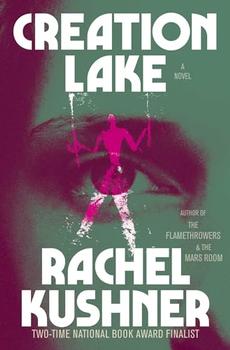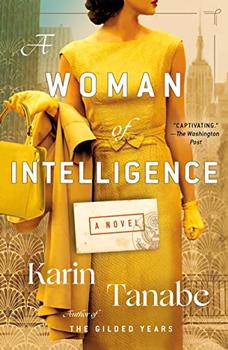Summary | Reading Guide | Discuss | Reviews | Beyond the book | Read-Alikes | Genres & Themes | Author Bio

A Novel
by Rachel KushnerFrom Rachel Kushner, a Booker Prize finalist, two-time National Book Award finalist, and "one of the most gifted authors of her generation" (The New York Times Book Review), comes a new novel about a seductive and cunning American woman who infiltrates an anarchist collective in France—a propulsive page-turner of glittering insights and dark humor.
Creation Lake is a novel about a secret agent, a thirty-four-year-old American woman of ruthless tactics, bold opinions, and clean beauty, who is sent to do dirty work in France.
"Sadie Smith" is how the narrator introduces herself to her lover, to the rural commune of French subversives on whom she is keeping tabs, and to the reader.
Sadie has met her love, Lucien, a young and well-born Parisian, by "cold bump"—making him believe the encounter was accidental. Like everyone Sadie targets, Lucien is useful to her and used by her. Sadie operates by strategy and dissimulation, based on what her "contacts"—shadowy figures in business and government—instruct. First, these contacts want her to incite provocation. Then they want more.
In this region of centuries-old farms and ancient caves, Sadie becomes entranced by a mysterious figure named Bruno Lacombe, a mentor to the young activists who communicates only by email. Bruno believes that the path to emancipation from what ails modern life is not revolt, but a return to the ancient past.
Just as Sadie is certain she's the seductress and puppet master of those she surveils, Bruno Lacombe is seducing her with his ingenious counter-histories, his artful laments, his own tragic story.
Written in short, vaulting sections, Rachel Kushner's rendition of "noir" is taut and dazzling. Creation Lake is Kushner's finest achievement yet as a novelist, a work of high art, high comedy, and unforgettable pleasure.
I really enjoyed the conversations and characters, but I wasn't fully sure what I was reading at times. The plot is slow and mostly light on the action, and I didn't know how I felt about the narrator. This is one of those books where everything clicks into place an hour after finishing. Only then did I see the staggering layers of character development, the unruly threads of modern living, and what it means to be in constant conversation with the past. Once I gave up on Creation Lake being any certain kind of novel, I was wowed that it wasn't a particular type at all so much as a rupture of one...continued
Full Review
 (598 words)
(598 words)
(Reviewed by Erin Lyndal Martin).
 Characters in Creation Lake frequently reference the French philosopher Guy-Ernest Debord, whose popularity has recently grown due to his work's relevance to digital culture.
Characters in Creation Lake frequently reference the French philosopher Guy-Ernest Debord, whose popularity has recently grown due to his work's relevance to digital culture.
Born in Paris in 1931, Debord had activist leanings early on while protesting France's war with Algeria. He also joined the Lettrists at age 18. They were ostensibly an avant garde art group that loved the work of Romanian writer Tristan Tzara. Their leader, a fellow Romanian named Isidore Isou, generated a lot of conflict within the group, which eventually disbanded, with the departing members forming other groups.
Debord is primarily known for his work with the Situationists International (SI). SI was a Marxist, Surrealist collective of writers, artists, ...

If you liked Creation Lake, try these:

by Lea Carpenter
Published 2025
Set in the dark world of international espionage, from London to Mallorca, Croatia, Paris, and Cap Ferret: the gripping and suspenseful story of a young woman who unwittingly becomes a perfect asset in the long overdue finale of a covert special op

by Karin Tanabe
Published 2022
From "a master of historical fiction" (NPR), Karin Tanabe's A Woman of Intelligence is an exhilarating tale of post-war New York City, and one remarkable woman's journey from the United Nations, to the cloistered drawing rooms of Manhattan society, to the secretive ranks of the FBI.